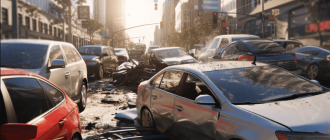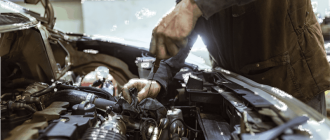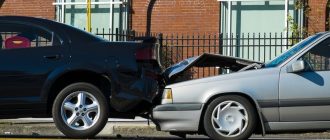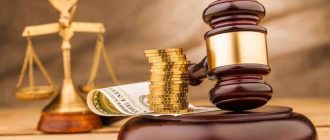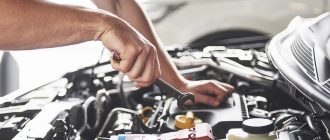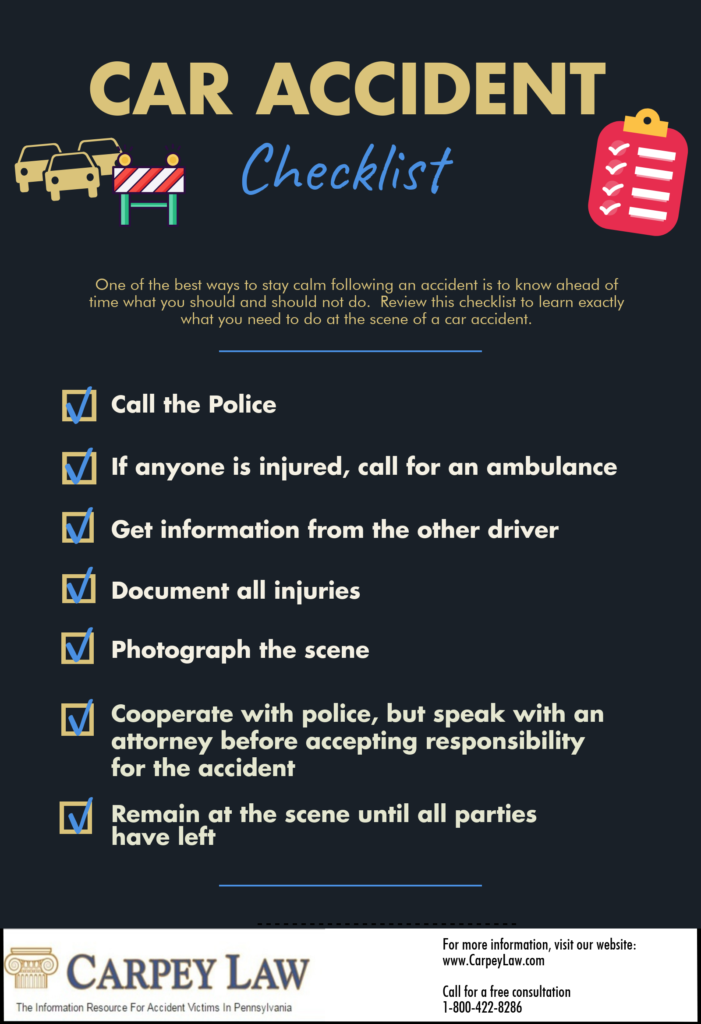
What to Do Immediately After a Car Accident
Being involved in a car accident can be a stressful and overwhelming experience. In the midst of the chaos, it’s important to know what to do immediately after the accident to ensure your safety and protect your interests. By taking the right steps, you can minimize the potential damage and navigate through the aftermath more smoothly.
First and foremost, it is crucial to prioritize your safety and the safety of others involved. If possible, move your vehicle to a safe location away from traffic, and turn on your hazard lights to warn approaching vehicles. If anyone is injured, call emergency services immediately and provide them with accurate information about the location and nature of the accident.
Once you have ensured everyone’s safety, it’s important to gather as much information as possible about the accident. This includes exchanging contact details and insurance information with the other driver(s) involved. It is also a good idea to take photos of the scene, including any damage to the vehicles and the positioning of the cars before they are moved. This evidence can be invaluable when filing an insurance claim or dealing with legal proceedings.
Finally, it is essential to report the accident to your insurance company as soon as possible. Many insurance policies have strict deadlines for reporting accidents, so it’s important to act promptly. Provide your insurer with all the necessary details, including a description of the accident, any injuries sustained, and the contact information of the other party involved. This will ensure that your claim is processed efficiently and that you receive the necessary support.
Assess the Situation
Immediately after a car accident, it is important to assess the situation to determine the level of danger and the necessary actions to take. Assessing the situation involves evaluating the safety of the surroundings, checking for injuries, and determining the extent of damage to the vehicles involved. Follow these essential steps to assess the situation effectively:
- Ensure safety: Move your car to a safe location if possible, away from traffic, to prevent further accidents or injuries.
- Check for injuries: Assess yourself and others involved in the accident for any visible injuries. If anyone is injured or unconscious, call emergency services immediately.
- Call the police: Contact the police to report the accident, especially if there are significant damages or injuries. Provide them with accurate information and cooperate fully.
- Document the scene: Take photos of the accident scene, including the vehicles, damages, and any contributing factors such as skid marks or road conditions. This documentation will be valuable for insurance claims or legal purposes.
- Exchange information: Exchange contact and insurance information with the other party involved in the accident. Obtain their name, phone number, address, insurance details, and license plate number.
- Identify witnesses: Look for any witnesses at the scene who could provide additional information about the accident. Collect their names and contact information, as their testimonies may be crucial in determining liability.
- Do not admit fault: Avoid admitting fault or making any assumptions about the accident. Leave the determination of liability to the appropriate authorities and insurance companies.
- Notify your insurance company: Inform your insurance provider about the accident as soon as possible. Provide them with accurate details about the incident and follow their instructions regarding the claims process.
By assessing the situation carefully and following these essential steps, you can ensure that you are taking the necessary actions after a car accident to protect yourself and others involved.
Ensure Your Safety
What to do immediately after a car accident is crucial, and the first thing you need to focus on is ensuring your safety. Follow these essential steps:
- Stay calm and move to a safe location: If your car is still drivable and the accident is minor, move it to the side of the road or a safe place to avoid obstructing traffic.
- Check for injuries: Assess yourself and any passengers in your car for injuries. If anyone is hurt, call an ambulance immediately. Even if you don’t see any injuries, it’s a good idea to seek medical attention afterward, as some injuries may become apparent later.
- Turn on hazard lights: Activate your hazard lights to alert other drivers of the accident and to help prevent further collisions.
- Contact the authorities: Call the emergency services or the local police to report the accident. Provide them with the necessary details, including the location, description of the accident, and any injuries or damages involved.
- Warn others: If you have access to warning signs or flares, use them to signal other drivers and prevent additional accidents.
- Do not leave the scene: It’s important to stay at the scene until the authorities arrive and give you further instructions.
Remember, your safety should always be your top priority after a car accident. By following these steps, you can ensure that you and others involved in the accident are out of harm’s way.
Call Emergency Services
One of the most important things to do immediately after a car accident is to call emergency services. This step is crucial in ensuring the safety of everyone involved and getting the necessary help and support.
When you call emergency services, you should provide them with the following details:
- Location of the accident: Inform the operator about the exact location of the accident to help emergency services reach the scene quickly.
- Number of vehicles involved: Let them know the number of vehicles involved in the accident to give them an idea of the scale of the incident.
- Extent of injuries: If you or anyone else is injured, describe the injuries as accurately as possible to help emergency services prepare and dispatch the appropriate personnel.
- Any other crucial information: If there are any other important details about the accident, such as a fire or hazardous materials involved, make sure to mention them to the operator.
Remember to stay calm while speaking to emergency services and provide clear and concise information. Their quick response can make a difference in saving lives and mitigating the impact of the accident.
It’s important to note that in some cases, calling emergency services may not be necessary if the accident is minor and no serious injuries or damages are involved. However, if there is any doubt about the severity of the accident, it’s best to err on the side of caution and make the call.
Exchange Information
Immediately after a car accident, it is important to exchange information with the other parties involved. By doing so, you can ensure that you have all the necessary information for insurance purposes and to protect your rights.
Here is a list of what to do:
- Stay at the Scene: It is crucial to remain at the scene until you have exchanged information with the other driver(s).
- Collect Contact Details: Get the other driver’s name, phone number, and email address. Also, obtain their insurance details, including the name of their insurance company and policy number.
- Take Photos: Use your mobile phone or camera to take photos of the accident scene, the damage to the vehicles, and any other relevant details.
- Witnesses: If there are any witnesses present, ask for their contact information as well. Their statements may be valuable in determining who is at fault.
- Police Report: If the accident is severe or involves injuries, it is advisable to call the police. Ensure you have a copy of the police report as it contains important information about the accident.
- Record Details: Write down your account of what happened, including the time, location, and weather conditions. This will be useful when filing an insurance claim.
Remember, it is crucial to exchange information immediately after a car accident to ensure a smooth claims process and protect your rights. Failure to do so may result in complications when trying to resolve the accident.
Document the Scene
After a car accident, it is crucial to document the scene accurately and thoroughly. This step is important as it can provide evidence for insurance claims and legal proceedings. Here is what you should do immediately:
- Ensure Safety: First and foremost, make sure that you are in a safe place. If possible, move your car to the side of the road to avoid further accidents or traffic jams.
- Call for Help: Dial emergency services, such as the police or an ambulance, if there are injuries or significant damage to vehicles. They will assess the situation and provide necessary support.
- Take Photos: Use your smartphone or a camera to capture visual evidence of the accident scene. Take pictures of the vehicles involved, any damages, skid marks, and road conditions. These photos will help in establishing the facts later on.
- Record Witnesses: If there are any eyewitnesses, try to gather their contact information. They might be able to provide valuable statements or testify about the sequence of events.
- Make Notes: Write down the date, time, and location of the accident. Include details like the weather conditions and any other relevant factors. These notes will serve as a reference in the future.
- Exchange Information: Share your contact details, insurance information, and vehicle registration number with the other party involved. Also, note the make, model, and license plate number of their vehicle.
- Draw a Diagram: If possible, sketch a simple diagram that shows the positions of the vehicles before, during, and after the accident. Include road signs, traffic signals, and any landmarks to provide context.
Remember, the more detailed and accurate your documentation is, the better it will be for resolving any disputes and ensuring a fair settlement.
Notify Your Insurance Company
After a car accident, one of the first things you should do is notify your insurance company. This step is crucial to ensure that your insurance provider is aware of the accident and can guide you through the claims process.
When contacting your insurance company, be prepared to provide them with all the relevant details about the accident, including:
- The date, time, and location of the accident
- The names and contact information of any other people involved, such as drivers, passengers, and witnesses
- The insurance information of the other drivers involved
- A brief description of what happened
Notifying your insurance company promptly is important, as there may be time limits for filing a claim. Delaying in reporting the accident may result in complications or even a denial of your claim.
Remember to also inform your insurance company if you were injured in the accident. They will guide you on the necessary steps to take to file a personal injury claim if applicable.
Keep in mind that even if the accident was not your fault, you should still notify your insurance company. They are responsible for representing your interests and protecting your rights throughout the claims process.
Seek Medical Attention
If you are involved in a car accident, it is essential to prioritize your health and wellbeing. Seeking medical attention immediately after the accident can help ensure that any injuries you may have sustained are properly diagnosed and treated.
Here are the steps you should take to seek medical attention after a car accident:
- Check yourself for injuries: Take a moment to assess your own physical condition. If you are experiencing any pain, discomfort, or think you may have been injured, it is important to seek medical attention right away.
- Call for emergency assistance: If you or anyone else involved in the accident is seriously injured, call 911 or the local emergency number immediately. It is important to let the emergency services know about the accident and provide them with any necessary details.
- Visit a doctor or go to the nearest hospital: Even if you do not believe your injuries are severe, it is still important to get checked out by a medical professional. Some injuries, such as whiplash or internal injuries, may not have immediate symptoms but can become more serious if left untreated.
- Follow the doctor’s instructions: After seeking medical attention, be sure to follow any recommendations or treatment plans provided by the doctor. This may include taking prescribed medications, attending follow-up appointments, or participating in physical therapy.
Remember, your health should always be your top priority. Seeking medical attention after a car accident can help ensure that any injuries are properly diagnosed and treated, leading to a faster and more complete recovery.
Preserve Evidence
After a car accident, it is important to act quickly to preserve crucial evidence that may be needed for insurance claims or legal proceedings. Here are some essential steps to take:
- Document the scene: Take photos or videos of the accident scene, damaged vehicles, skid marks, and any other relevant details. This visual evidence can support your account of what happened and help determine fault.
- Obtain contact information: Collect the names, phone numbers, and addresses of all parties involved in the accident, including drivers, passengers, and witnesses. This information will be useful when filing insurance claims or for legal purposes.
- Record the details: Write down the time, date, and location of the accident, as well as the weather conditions and any other relevant factors. Be sure to include a detailed account of what happened before, during, and after the collision.
- Preserve physical evidence: If possible, keep any damaged parts or items related to the accident, such as a broken headlight or crushed bumper. This evidence can help prove the extent of the damages and may be necessary for insurance claims or legal actions.
- Take witness statements: If there were any witnesses to the accident, ask them to provide a written or recorded statement describing what they saw. Their testimony can corroborate your account and strengthen your case.
Remember that preserving evidence is crucial in case you need to file a claim or pursue legal action after a car accident. By taking these immediate steps, you can help protect your rights and ensure a fair resolution to the situation.
Contact a Lawyer
After a car accident, it is essential to immediately contact a lawyer to protect your rights and ensure you receive the compensation you deserve. A lawyer specializing in personal injury and car accident cases can provide valuable legal guidance and support throughout the entire process.
Here are a few reasons why you should contact a lawyer after a car accident:
- Legal Expertise: A lawyer has the knowledge and expertise to navigate the complexities of car accident laws and regulations. They can provide advice on how to proceed with your case and help you understand your rights.
- Evidence Gathering: A lawyer can assist in gathering evidence to support your claim. They can work with investigators and accident reconstruction experts to analyze the accident scene, collect witness statements, and obtain crucial evidence such as surveillance footage or black box data.
- Negotiating with Insurance Companies: Dealing with insurance companies can be challenging, especially when they try to minimize or deny your claim. A lawyer can handle all communications with insurance companies on your behalf, ensuring your rights are protected and maximizing your chances of receiving fair compensation.
- Calculating Damages: Determining the full extent of your damages can be difficult, as it includes not only the cost of medical treatment but also lost wages, pain, and suffering, and future medical expenses. A lawyer can help accurately calculate your damages and fight for the compensation you deserve.
- Legal Representation: If your case goes to court, having a lawyer by your side is crucial. They can present your case before a judge and jury, advocating for your rights and fighting for fair compensation. A lawyer has the experience and knowledge to navigate the court system effectively.
Remember, time is of the essence when it comes to contacting a lawyer after a car accident. The sooner you reach out for legal assistance, the better your chances of obtaining a favorable outcome for your case.
Follow up and Review
After immediately after a car accident, there are a few important steps to take to ensure your safety and protect your rights. However, the process doesn’t end there. It’s crucial to follow up and review the actions you took after the accident to make sure you haven’t missed anything important.
1. Contact your insurance company: Even if you reported the accident at the scene, it’s essential to follow up with your insurance company to make sure they have all the necessary information and documentation. This will help facilitate the claims process.
2. Review your insurance policy: Take the time to review your insurance policy to understand the coverage you have and any applicable deductibles. This will help you better navigate the claims process and ensure you receive the appropriate compensation.
3. Assess your injuries: In the days following the accident, pay close attention to any injuries you sustained. Seek medical attention if necessary and keep records of any treatments or medications prescribed to you. This documentation will be important if you decide to pursue a personal injury claim.
4. Review accident reports: Obtain copies of any accident reports filed by law enforcement personnel or other parties involved. Review these reports carefully to ensure accuracy and gather any additional information that may be relevant to your case.
5. Document property damage: Take photos of the damage to your vehicle and any other property involved in the accident. This will serve as evidence during the claims process and help establish the extent of the damage.
6. Consult with an attorney: If you’re unsure about any aspect of the accident or the claims process, it’s wise to consult with an attorney who specializes in personal injury cases. They can provide guidance and advise you on the best course of action.
- Remember to keep all documentation related to the accident, such as medical records, insurance correspondence, and repair estimates. These documents will be crucial in assessing and resolving your claim.
Important note:
By following up and carefully reviewing the steps you took immediately after the car accident, you can ensure that you have taken all necessary actions to protect your rights and maximize your chances of receiving fair compensation.
Question-answer:
What should I do if I am involved in a car accident?
If you are involved in a car accident, the first thing you should do is check yourself and others for injuries. If anyone is injured, call for medical help immediately. If there are no injuries, it is important to move your vehicle out of the flow of traffic to ensure your safety. Once you are in a safe location, you should exchange information with the other party involved, such as names, contact information, and insurance details. It is also a good idea to take pictures of the accident scene and any damage to the vehicles. Finally, you should contact your insurance company to report the accident.
Do I have to call the police after a car accident?
In most cases, it is a good idea to call the police after a car accident. They can help assess the situation, gather evidence, and create an official report of the accident. This report can be useful when filing an insurance claim later on. However, if the accident is minor and there are no injuries, some areas may not require you to call the police. It is always best to check your local laws and regulations to determine if calling the police is necessary.
What information should I exchange with the other driver?
After a car accident, it is important to exchange certain information with the other driver involved. This includes your name, contact information (phone number, address, email), and your insurance details (insurance company name, policy number). You should also ask the other driver for the same information. Additionally, it can be helpful to take note of the other vehicle’s make, model, and license plate number, as well as any visible damage.
Should I take pictures of the accident scene?
Yes, taking pictures of the accident scene can be very beneficial. These pictures can serve as evidence when filing an insurance claim or when dealing with any legal matters related to the accident. Be sure to take pictures of the vehicles involved, including any visible damage. It can also be helpful to take pictures of the surrounding area, such as road conditions, traffic signals, and street signs. These pictures can provide additional context and help determine fault in the accident.
